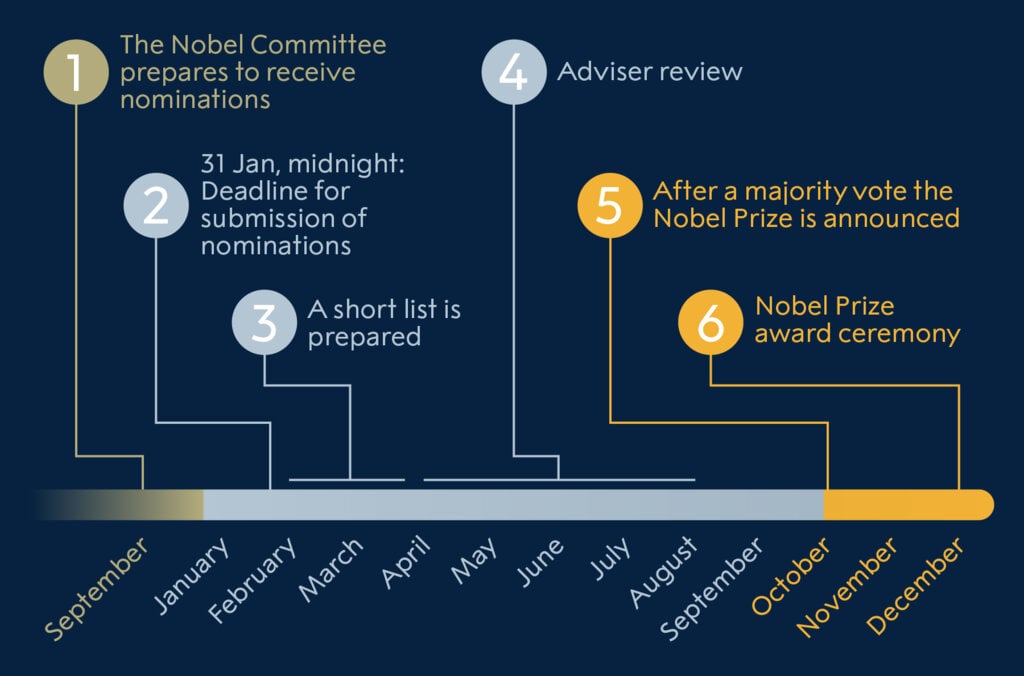The Nobel Prize is among the most prestigious awards in the world, recognizing outstanding contributions in various fields. Established by the will of Alfred Nobel, these awards have a rich history and significant impact on society. This blog will cover everything about the Nobel Prize, including its history, categories, selection process, and notable laureates.
History of the Nobel Prizes
Foundation
The Nobel Prize was founded in 1895 when Alfred Nobel signed his last will and testament. He allocated most of his fortune to fund the prize. The first awards were given out in 1901, on the fifth anniversary of his death.
Categories
Initially, the prize includes 5 categories: Physics, Chemistry, Physiology or Medicine, Literature, and Peace. In 1968, the Sveriges Riksbank Prize in Economic Sciences in Memory of Alfred Nobel was added, although it is not technically a Nobel Prize.

Selection Process
Nominations
Candidates for the Nobel Prize is nominated by qualified individuals, including previous laureates, members of academies, and professors from select universities.
Committees
Each prize category has its own committee responsible for reviewing nominations and selecting laureates. The committees evaluate the contributions based on their significance and impact on humanity.
Announcement
The Nobel Prize occurs annually in October, with the awards ceremony taking place on December 10, the anniversary of Alfred Nobel’s death.

Notable Laureates and Their Contributions
Throughout its history, the Nobel Prize has recognized many influential figures. Here are a few notable laureates:
- Marie Curie: The first woman to win a Nobel Prize, awarded in Physics (1903) and Chemistry (1911) for her research on radioactivity.
- Martin Luther King Jr.: Awarded the Nobel Peace Prize in 1964 for his nonviolent struggle for civil rights.
- Malala Yousafzai: The youngest-ever Nobel laureate, awarded the Nobel Peace Prize in 2014 for her advocacy of girls’ education.
Interesting Facts About the Nobel Prizes
The Nobel Prize has several intriguing aspects worth noting. Notably, some laureates have declined the prestigious award, including Jean-Paul Sartre, who turned down the Nobel Prize in Literature in 1964, and Le Duc Tho, who refused the Nobel Peace Prize in 1973, citing ongoing conflict in Vietnam as his reason for declining. In 2024, the Nobel Prizes collected 65 women, underscoring the ongoing need for gender equality in recognition within these esteemed awards. There have been 49 instances where the Nobel Prize receivers did not, primarily during the tumultuous periods of the World Wars, reflect the challenges faced in recognizing contributions to humanity during times of global conflict.
Conclusion
The Nobel Prize continues to inspire and recognize those who have made significant contributions to humanity. Understanding their history, categories, and the selection process enhances our appreciation for these prestigious awards. As we look forward to future laureates, the legacy of Alfred Nobel and the impact of this prize remains ever-relevant.
Read more on Lifetips.blog














